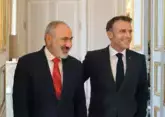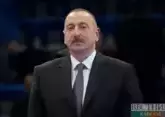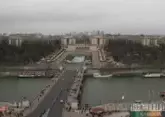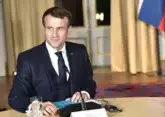French President Emmanuel Macron offered the hope that he would transform his country’s politics in two fundamental ways. His sweeping election victory last year seemed to offer a centrist answer to the populist movements of the far left and right that threaten to tear France apart. And once in office, he vowed not to repeat the performance of past presidents who backed away from badly needed economic reforms in the face of strikes and street protests. The Washington Post reports in its article France’s ‘yellow vests’ protests could weaken one of Europe’s few internationalist leaders that by Tuesday, those achievements seemed almost out of reach. A diffuse movement of protesters, organized on the Internet and without clear leadership, had shaken France with three weekends of demonstrations — and Mr. Macron, whose approval rating has fallen below 30 percent, announced a retreat from one of his reforms, a rise in fuel taxes. The extremist leaders whom Mr. Macron defeated 19 months ago were racing to exploit the popular anger. And a European state that seemed to offer a counterpoint to the turn toward nationalism in much of the democratic West was looking as fragile and conflicted as many of its neighbors.
Mr. Macron had previously ridden out more conventional strikes and protests against tough reform measures, including changes in labor laws. But his government appeared flummoxed and unnerved by the “yellow vests” movement, named for the distinctive safety garb the protesters wear. The protests’ center of gravity was in the countryside, where drivers were infuriated by a tax increase that added the equivalent of about 30 cents to an already high price of more than $6 per gallon of diesel fuel. But the past three weekends saw large and increasingly violent demonstrations in Paris and other cities, leading to hundreds of arrests and injuries.
The president may have felt he had no choice but to offer a concession: The government said the fuel increases would be suspended for six months. But that seemed unlikely to demobilize the yellow vests, some of whom say they are seeking to force Mr. Macron from office. That, too, is improbable; the president’s term extends to 2022, and there is no constitutional mechanism for removing him from office.
What does seem likely, unfortunately, is the weakening of one of the relatively few European leaders still standing firmly behind internationalist principles. Mr. Macron has been a leading voice for measures to control climate change and has tried to defend multilateralism from the assaults of President Trump. The danger is not just that Mr. Macron’s efforts to revitalize France’s economy and political system will stall; it is also that his failure will open the door to disastrous alternatives, such as the quasi-fascist Marine Le Pen or the far-left Jean-Luc Mélenchon, who between them captured about 40 percent of the first-round votes for president.
Mr. Macron must find ways to address a central problem that Western democracies now face: the bitter disenchantment of those who feel left behind by rapid technological change and economic dislocation. While there’s no clear road map, retreating from needed reforms is not the solution.










